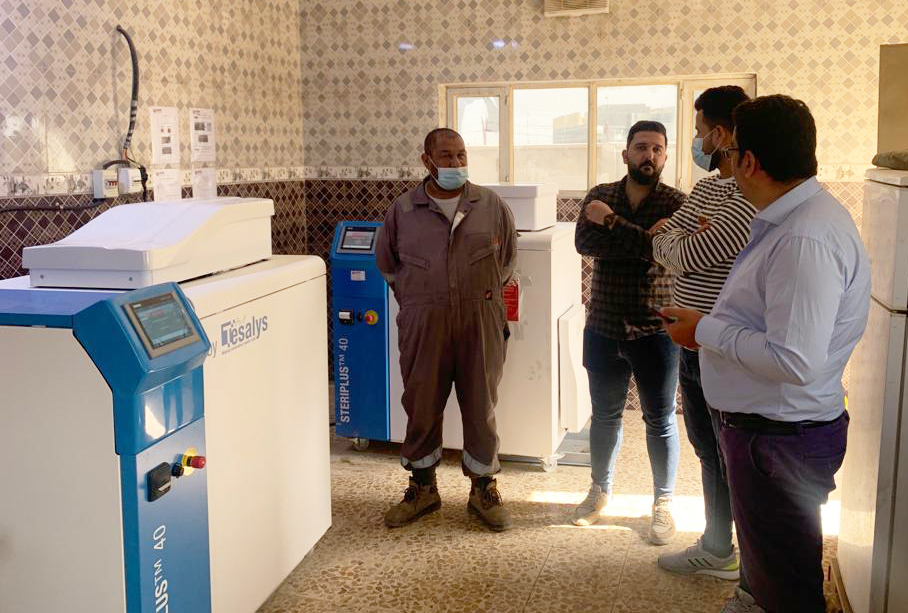 As part of the project, WHO has conducted a seminar that brought together stakeholders from various governorates to share the project's achievements and lessons learned from the pilot phase of implementing IPC with relevant stakeholders
As part of the project, WHO has conducted a seminar that brought together stakeholders from various governorates to share the project's achievements and lessons learned from the pilot phase of implementing IPC with relevant stakeholders
Baghdad, 23 March 2023 – The World Health Organization (WHO), in collaboration with the Japan International Cooperation Agency (JICA), completed a pilot project aimed at enhancing the comprehensive COVID-19 infection prevention and control (IPC) implementation strategy in Iraq.
The project was designed to reduce avoidable morbidity and mortality in Iraq by cutting the transmission chain of COVID-19 and other diseases in health care and construction settings through enhanced IPC strategies, primarily targeting Basrah and Dhi Qar governorates.
"The project's geographical scope was limited to southern governorates, but its success paves the way for future expansion to all governorates in Iraq," said Dr Ahmed Zouiten, WHO Representative in Iraq.
"Antimicrobial resistance (AMR) remains one of the most important threats to public health in recent history. Yet, with an effective IPC, we not only control diseases but also get closer to reducing AMR countrywide."
The project supported 10 primary health care facilities and two hospitals with comprehensive training in IPC practices, enabling health professionals to better protect patients and staff in the fight against infectious diseases, handling and managing oxygen cylinders for clinical use and peripheral devices, and enhancing their capabilities in providing critical care to patients in need.
The contribution also enabled WHO to procure and distribute essential equipment, including 4 medical waste management devices, 3 anaesthesia devices, and 405 medical oxygen cylinders.
All equipment has been delivered and installed at the project locations. These have enabled thousands of people to benefit from the enhanced capacity of the supported health facilities.
 The contribution also enabled WHO to procure and distribute essential equipment, including 4 medical waste management devices, 3 anaesthesia devices, and 405 medical oxygen cylinders
The contribution also enabled WHO to procure and distribute essential equipment, including 4 medical waste management devices, 3 anaesthesia devices, and 405 medical oxygen cylinders
The project team also developed an IPC training manual tailored for pilot construction sites to ensure infection prevention measures are implemented in high-risk environments. This manual is a blueprint for future construction projects to enhance safety and health standards.
As part of the project, WHO conducted a seminar today that brought together stakeholders from various governorates to share the project's achievements and lessons learned from the pilot phase of implementing IPC with relevant stakeholders.
"I am glad to learn that our contribution has enabled the hospitals to strengthen their response to the diseases in Dhi Qar," said Mr Masamoto Kenichi, Chargé d'Affaires ad interim of Japan to Iraq. "Japan remains committed to supporting Iraq to make the life of people better and protect the vulnerable."
This project, which was made possible through collaboration with the Ministry of Health and the partnership with JICA, proved that significant accomplishments could be achieved when organizations join forces and work together.


